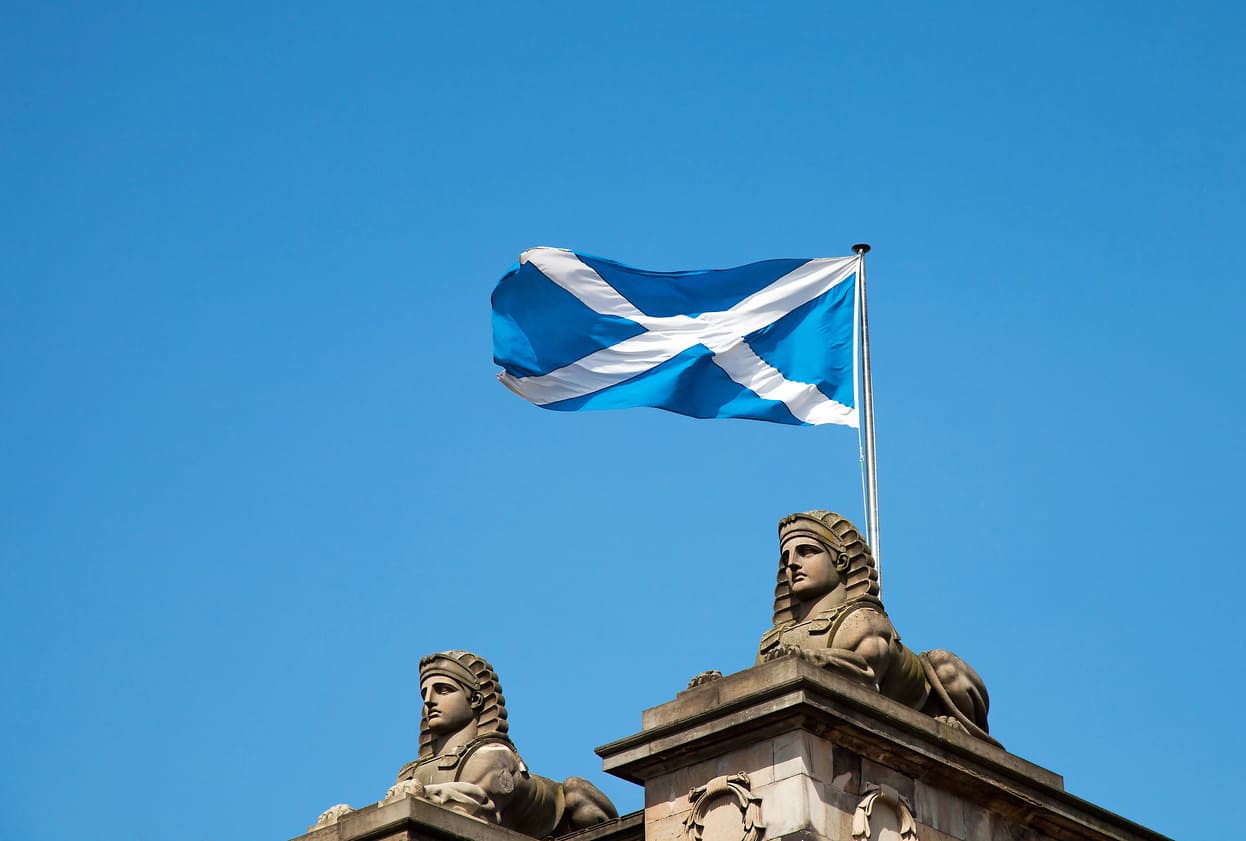Dates of St. Andrew's Day in the United Kingdom
| 2026 | Nov 30 |
| 2025 | Nov 30 - Dec 1 |
| 2024 | Nov 30, Dec 2 |
United Kingdom Holiday Calendars
St. Andrew's Day, celebrated on November 30th, honors Scotland's patron saint, St Andrew. It is a national day of cultural pride marked with festivities, traditional music, food, and events across the country.
St. Andrew's Day: A Public Holiday?
St. Andrew's Day is a public holiday in Scotland, though not across the entire UK. Most businesses, offices, and schools in Scotland are closed, allowing citizens to enjoy celebrations and festivities.
If the holiday falls on a weekend, it is observed on the following Monday. In the rest of the UK, St. Andrew's Day is not a public holiday, and regular activities continue as usual.

St. Andrew's Day
St. Andrew's Day celebrated on November 30th, honors Saint Andrew, the patron saint of Scotland. Andrew, one of Jesus' twelve disciples and brother of Saint Peter, was a fisherman who spread Christianity across various regions. According to tradition, he was martyred on an X-shaped cross, now represented by the Saltire, the Scottish flag. Saint Andrew has been revered in Scotland for centuries, with legends suggesting he became Scotland's patron saint after a battle victory in 832 AD. His feast day has been marked since at least the 10th century as a celebration of Scottish identity and religious devotion.
St. Andrew's Day Celebration in Scotland
In the UK, St. Andrew's Day is primarily celebrated in Scotland, which is recognized as a bank holiday. The holiday was officially declared by the Scottish Parliament in 2007, offering an opportunity to promote and appreciate Scottish culture and traditions. While not all businesses and institutions close, many schools and some companies grant time off. If November 30th falls on a weekend, the holiday shifts to the following Monday. It is not a public holiday outside of Scotland, and regular activities continue as usual.
Celebrations in Scotland typically include traditional music, food, and dance. Events such as ceilidhs (folk dance gatherings) and flag-raising ceremonies are common. In cities like Edinburgh and Glasgow, festivals and public events feature live music, parades, and Scottish delicacies like haggis and shortbread. Many historic sites and attractions across Scotland offer free entry on St. Andrew's Day, encouraging people to explore the country's heritage.
The importance of St. Andrew's Day goes beyond honoring a patron saint. It fosters a sense of national pride, unity, and cultural identity among Scots. The holiday offers a chance for Scots, both at home and abroad, to connect with their roots and celebrate their shared heritage. Through public events and gatherings, St. Andrew's Day continues to strengthen community bonds and promote the values of generosity and hospitality.
St. Andrew's Day Observances
| Year | Date | Weekday | Name | Holiday Type | Region |
|---|---|---|---|---|---|
| 2024 | Nov 30 | Sat | St. Andrew's Day | Local Bank Holiday | SCT Scotland |
| Dec 2 | Mon | St. Andrew's Day observed | Local Bank Holiday | SCT Scotland | |
| 2025 | Nov 30 | Sun | St. Andrew's Day | Local Bank Holiday | SCT Scotland |
| Dec 1 | Mon | St. Andrew's Day observed | Local Bank Holiday | SCT Scotland | |
| 2026 | Nov 30 | Mon | St. Andrew's Day | Local Bank Holiday | SCT Scotland |
| 2027 | Nov 30 | Tue | St. Andrew's Day | Local Bank Holiday | SCT Scotland |
| 2028 | Nov 30 | Thu | St. Andrew's Day | Local Bank Holiday | SCT Scotland |



